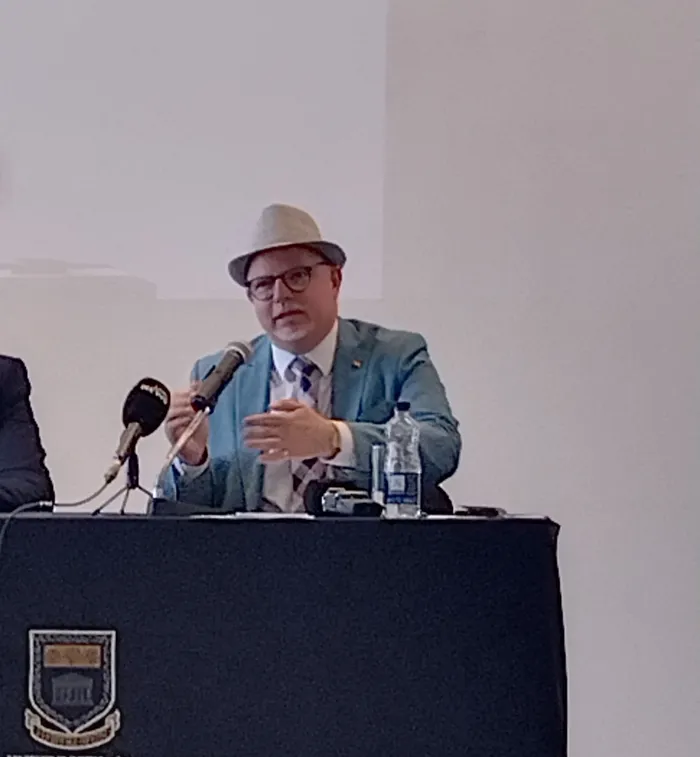Professor shares his vision for UWC

UWC’s new rector and vice chancellor Professor Robert Balfour.

UWC’s new rector and vice chancellor says his vision for the university is one of collaboration, thoughtful planning and shared responsibility to build a more inclusive and transformative academic environment.
Professor Robert Balfour shared this vision at his inaugural press conference last Thursday at the university’s Centre for Humanities Research in Woodstock.
Professor Balfour, known for his wide-brimmed hat and a bow tie took up office last year and has spent the time getting to every corner of the campus, meeting staff and students and getting acclimated to the erratic Cape Flats weather patterns. He takes over from Professor Tyrone Brian Pretorius.
His goal for UWC, which turns 65 this year, is for it to be recognised as a leading research-led university known for their synergy between their undergraduate and post graduate programmes, reassess and invest in the university’s curriculum and to foster a more inclusive academic environment. He hopes to bring together stakeholders, communities and students to build a more inclusive and transformative academic environment that aligns with its historical and intellectual legacy.
“My contribution to UWC’s legacy would be to create the climate to revitalise the debate about the relevance of the left in the twenty-first century where capitalism seems hegemonic; it seems to be largely unaccountable, very exploitative and damaging to the environment, to people, and to relations between people. Even so, for me, the intellectual project about the left's contribution is more than only a critique of what is wrong with capitalism. It's about imagining a better future for ourselves. It’s appropriate for UWC to be the place where that imagining infuses with teaching, community engagement and research.”
He said his appointment provided an opportunity in his personal and professional life to contribute to a place that has always signalled hope for transformation and inclusion.
“This opportunity is a coming together of my own intellectual work and experience in an environment which I find attractive, in which I have been warmly welcomed by students, staff and communities in a way which suggests we can do great things together,” he said.
His goal for the institution is deeply personal and stems partially from his personal journey of self-acceptance, symbolising hope and the possibility of transformative change for others who feel excluded. As an only child born in Johannesburg and who grew up in rural Mpumalanga, he was sent to a Catholic boarding high school in Pretoria because his parents worried about a lack of socialisation in the 1980s. It was the heyday of corporal punishment, and the school was a “brutal space”. However, as a young man who loved art and books, the quality of education there satisfied his academic appetite. Socially, he formed close friendships with the “loners and misfits” to survive the polarising environment.
He went on to study language, education and art and flourished as an academic, making crucial contributions to multilingual policies and curriculum development. His research focus – which includes language education and policy, postcolonial literature and rural education – reflects his commitment to advancing educational equity and social justice in South Africa and beyond. Thus, he explained, joining UWC had always been his dream given that since its inception during apartheid, the institution has committed itself to critical inquiry about justice, decoloniality and education transformation.
“When we talk about a place where Africanisation of the curriculum, decoloniality, decolonisation, multilingualism, gender and diversity could make sense in terms of coming together, that is what UWC represents for me. And it's enormously exciting. I have to say what a wonderful chance it is in life to come to a community of scholars and students who, I'm assuming, have similarly chosen to be here rather than elsewhere because of the values and the history of the place.”
Professor Balfour admits that his dreams are big and he does not have all the answers. However, he is confident that students, communities, staff, intellectuals, activists and leaders will join him.
“Leadership cannot be about ego. It has to be about community. That is going to be difficult and probably characterised by failures as much as successes.”
Related Topics: